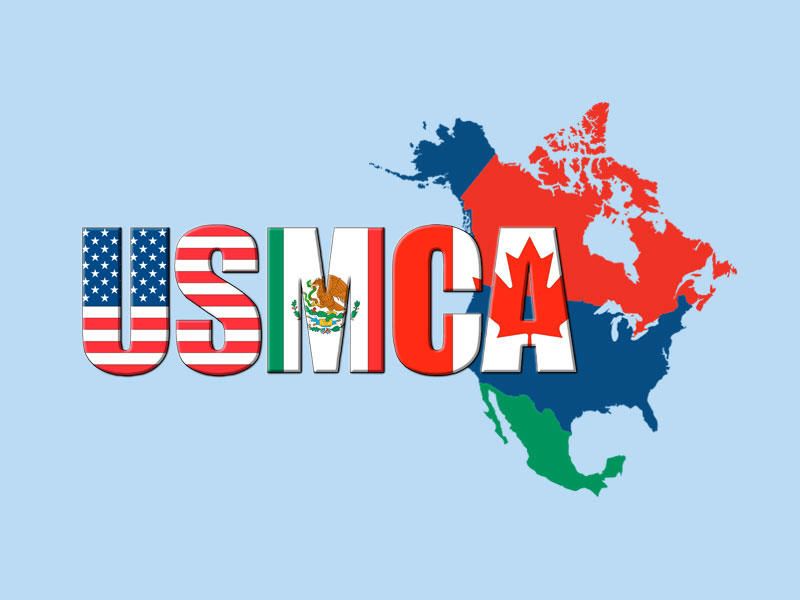This is a brief summary from the U.S. government on the Agreement between Mexico, the United States and Canada (USMCA or «the Agreement»), which entered into force on July 1, 2020.
The USMCA maintains the zero tariffs between the three countries already provided for in the North American Free Trade Agreement (NAFTA), but also modernizes this agreement to include provisions relating to digital trade and small and medium-sized enterprises (SMEs).
Since the original NAFTA did not eliminate all tariffs on agricultural trade between the United States and Canada, the USMCA creates new market access opportunities for U.S. exports of dairy, poultry and eggs to Canada.
In return, the United States provides Canada with access to dairy products, peanuts, processed peanut products, and a limited volume of sugar and sugar-containing products.
In addition, the USMCA includes strong and enforceable labor and environmental obligations in its main text.
USMCA
In 2020, the estimated total value of trade in goods and services between the United States and Mexico and Canada totaled $1.2 trillion.
The USMCA contains new rules of origin for motor vehicles that require a certain level of North American content in the vehicle ultimately produced.
This agreement raises the regional content value for automobiles to 75% (up from 62.5% under NAFTA).
At the same time, it requires that at least 70% of the steel and aluminum purchased by producers must come from North America.
The USMCA also introduced a new labor content value standard whereby a certain percentage of vehicles must be manufactured by workers whose average wage is at least US$16 per hour.
Environment and labor
The obligations under the environmental chapter of the USMCA are enforceable through the Treaty’s dispute settlement mechanism and address major environmental concerns such as illegal, unreported and unregulated (IUU) fishing and harmful fishing subsidies.
The USMCA obligates the United States, Mexico and Canada to take measures to combat and prevent trafficking in timber, fish and other wildlife, and includes provisions to address other environmental issues, such as air quality and marine debris.
The USMCA’s strong and comprehensive labor provisions are fully integrated into the text of the Agreement and are fully enforceable under the Agreement’s dispute settlement mechanism.
The USMCA provides, among other obligations, new provisions requiring the Parties to take measures to prohibit the importation of goods produced through forced labor and to address violence against workers exercising their labor rights.
Also, the USMCA also includes an innovative Rapid Response Mechanism (RRM) in the dispute settlement chapter to address the protection of association and collective bargaining rights at facilities.
This new mechanism provides for the suspension of USMCA tariff benefits or the imposition of other sanctions, such as blocking imports from repeat offenders, in the event of non-compliance with core labor obligations.
Foreign trade
The USMCA includes firm commitments on digital trade, financial services and intellectual property rights.
It also addresses non-tariff barriers that can hinder U.S. exports through new provisions on transparency and regulatory issues, including in the chapters on technical barriers to trade and sanitary and phytosanitary measures, as well as in a new chapter on good regulatory practices.
Finally, the Agreement contains provisions to combat subsidies and non-market practices that can harm U.S. workers and businesses, including a chapter addressing unfair currency practices, rules on trade distortions caused by state-owned enterprises, and transparency obligations with respect to future trade negotiations by any USMCA Party with non-market economies.
![]()

